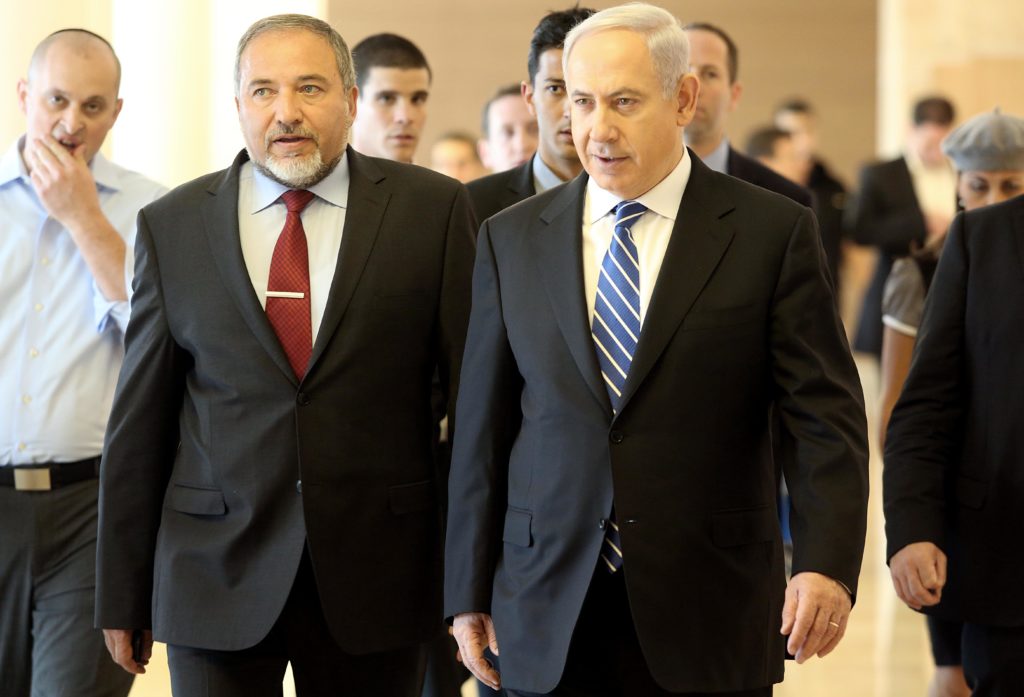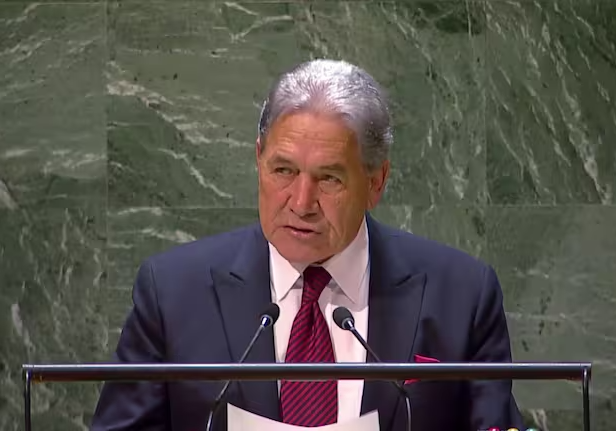Australia/Israel Review
From Ya’alon to Lieberman
May 31, 2016 | Amotz Asa-El

Bibi’s controversial coalition manoeuvre
Amotz Asa-El
“My friend, my buddy, my general,” enthused an enamoured Menachem Begin in December 1969, referring to fabled aviator Ezer Weizman. Begin was speaking on a day on which Weizman had woken up in the morning as IDF Deputy Chief of Staff but would be going to bed as Israel’s Minister of Transportation.
The leader of the conservative Herut faction, forerunner of the Likud, was basking in his first successful recruitment of an IDF general, a fitting reply to Labor’s enlistment of Moshe Dayan as Defence Minister. (Incidentally, Weizman was Dayan’s brother-in law at the time.)
The alliance became a political marriage in 1977 when Begin was elected Prime Minister and appointed Weizman his Defence Minister – but this ended in divorce in 1980, with Weizman resigning over policy differences with Begin.
It was the beginning of a long and painful love-hate relationship between the Likud and retired IDF brass, a saga whose latest chapter saw Defence Minister and former IDF Chief of Staff Moshe Ya’alon’s removal as minister and resignation from the Government and Knesset in the wake of a coalition politics manoeuvre that crowned the controversial Avigdor Lieberman as Ya’alon’s replacement.
Aimed at expanding Israeli PM Binyamin Netanyahu’s narrow coalition from 61 to 67 of the Knesset’s 120 members, harnessing Lieberman is also a gamble whose political and strategic repercussions are impossible to predict.
Steering the military’s continuous preparations and development, confirming promotions of generals, approving military operations, and presiding over US$100 billion, or 15% of the overall budget – the defence minister is easily the second most powerful person in Israel. That is, unless the prime minister keeps the all-important portfolio himself, as did David Ben-Gurion and, at various times, five of his eleven successors.
Nine of incoming Defence Minister Lieberman’s sixteen predecessors were retired generals, a background that, rather than easing their path, frequently caused disharmony.
That is what happened with Weizman, who found it difficult to accept Begin’s authority. It was a syndrome Begin again met the following decade, much more fatefully, when his next defence minister, Ariel Sharon, directed the First Lebanon War toward objectives much more extensive than Begin had in mind, and Sharon was forced to resign less than two years after taking up the job.
A similar outcome awaited Benjamin Netanyahu’s first defence minister, Yitzhak Mordecai, a hero of the 1973 war who, among other distinctions, led the IDF’s re-conquest of Mt Hermon, Israel’s highest peak. The pair had been working together for two-and-a-half years when Netanyahu fired Mordecai in January ’99, following reports of his planned defection to a rival party – where he indeed ended up.
The alliance with Ya’alon has now also reached its abrupt end, though circumstances are different.
Soft-spoken, balding, and unassuming, the 1.95m Ya’alon lacks the flamboyance that was the hallmark of military celebrities like Sharon, Dayan and Weizman. Though his military record is remarkable, including leading daring raids beyond enemy lines and leading the IDF to victory in last decade’s war with Palestinian suicide bombers, Ya’alon is a patient listener who has never been witnessed rabble-rousing – or even publicly raising his voice.
Born in 1950 in a Haifa suburb to a factory worker and a Holocaust survivor, Ya’alon did not plan on a military career. After serving in the paratroopers he joined Kibbutz Grofit in the Arava Desert, 30 miles north of the Red Sea, where he specialised in milking cows.
The young dairy farmer’s career plans changed with the Yom Kippur War, which caused him to return to service as a patriot determined to help rebuild a demoralised IDF.
Ya’alon is not known to have questioned the dominant left-leaning politics of his Kibbutz social milieu at the time. That would only happen much later, in the wake of the 1993 Oslo Accords, whose violent aftermath convinced him, as head of Military Intelligence, that the Palestinians did not want peace.
It was in that vein that he also questioned, as Chief of General Staff during Ariel Sharon’s premiership, the wisdom of the 2005 disengagement from Gaza. Ya’alon’s consequent removal by Sharon for his hawkishness on this issue ironically foreshadowed his removal by Netanyahu for his liberalism on others.
Ya’alon has recently irked Netanyahu twice: first, in his quick damnation of a soldier who fired at a subdued terrorist, and then in his backing of a general who made a controversial statement concerning Israeli society.
The shooting incident involves Sgt. Elor Azaria, 20, who was caught on camera firing a bullet at a terrorist who had already been shot and was lying on the ground in the aftermath of his stabbing a soldier in Hebron.
The soldier, who is now being court-martialled for manslaughter, became the focus of a right-wing campaign claiming he was merely fighting terror, and that he reasonably believed the terrorist might have had a suicide vest, and thus is a victim of ultra-liberal activists, like the NGO that videotaped and disseminated the incident’s footage.
Ya’alon defied that right-wing campaign by denouncing the shooting as an infringement of the “purity of arms” principle on which the IDF prides itself.
The second incident that preceded Ya’alon’s removal involved Deputy Chief of General Staff Maj-Gen Yair Golan.
Speaking during a public ceremony on Holocaust Remembrance Day, the General, the son of Holocaust survivors, said: “If anything frightens me in the Holocaust’s memory it is the identification of revolting processes that happened in Europe in general, and in Germany in particular, 70, 80, and 90 years ago, and finding evidence for their existence in our midst.”
Despite its generality, the statement was interpreted as an allusion to the shooting incident in particular, and to broader issues that split Israel’s right and left, so much so that Prime Minister Netanyahu publicly condemned it. “This statement is revolting, and it cheapens the Holocaust,” he said and added: “It should not have been said at any time, least of all the one at which it was said.”
The incident would have ended there, but Ya’alon, addressing immediately afterward the Defence Ministry’s Independence Day reception, called on the IDF’s generals: “Speak your minds, even if what you have to say is not mainstream, and even if it disputes policies adopted by the High Command or the political echelons.”
Netanyahu now summoned his defence minister for “a clarification talk” after which the two claimed they were returning to business as usual. That was on Sunday, 15 May. By the following Wednesday, Ya’alon learned, with the rest of the country, that Netanyahu was in the process of giving his job to Lieberman.
Netanyahu reportedly hoped to install Ya’alon as foreign minister, but on Friday, May 20, Ya’alon announced his resignation. Netanyahu may have overplayed his hand, having now lost a moral compass and an authoritative pragmatist he likely would have wanted to retain at a time his coalition was becoming the most right-leaning he has ever headed.
Curiously enough, all this happened a mere few days after Netanyahu was shoulder-deep in an effort to expand his coalition in the exact opposite direction – to include the centre-left Labor/ Zionist Union opposition.
“Netanyahu made a commitment to halt construction in the settlements, resume negotiations with the Palestinian Authority, and place foreign policy in our hands as well as seven ministries, five deputy-ministerships, four parliamentary committee chairmanships including Defence and Foreign Affairs, and the defence portfolio in a year,” said Zionist Union Chairman Isaac Herzog in an impassioned televised statement.
It was an embattled politician’s bitter post-mortem, chequered with jibes at his predecessor, former Labor Chairperson Shelly Yachimovich, whom he accused of sabotaging his effort by inciting others in their faction to oppose the deal he was secretly finessing.
Herzog’s effort was heroic, involving at one point a far-flung diplomatic web worthy of an aspiring foreign minister.
Underscored by Egyptian President Abdel Fatah al-Sisi’s public call on Israel’s political rivals to join hands for peace, Herzog said that at stake was a regional diplomatic breakthrough. Reportedly engineered by former British Prime Minister Tony Blair with US Secretary of State John Kerry’s knowledge, Sisi’s call was understood as meant to inspire Herzog’s appointment as foreign minister, and then generate a regional peace conference.
The media smelled a Netanyahu-Herzog government, with one report claiming the two would travel to Cairo to ignite a peace process under Sisi’s auspices, and another claiming Sisi would visit Israel and address the Knesset as a prelude for a deal with the Palestinians.
As of this writing it is unclear what dialogue, if any, actually took place between Netanyahu and Israel’s neighbours. It is also unclear whether negotiating with Herzog was an aim or a means, and whether the fallout with Ya’alon was accidental or planned.
Netanyahu says he was forced to end the talks with Herzog when he learned that too many of the the Zionist Union party’s 24 lawmakers would not follow Herzog into a coalition with Netanyahu. Lieberman’s 6-member faction is much smaller, but much more disciplined, the PM’s circle explained. This insight soon proved shaky when one of Lieberman’s lawmakers, Orly Levi, resigned from his faction, citing what she said was the party’s abandonment of the social agenda.
What seems clear – though at this writing it has yet to be formally finalised – is that these disparate dynamics are about to land one of Israel’s most controversial politicians in the country’s second most sensitive position.
The outspoken Lieberman’s impending appointment is disagreeable not only to the opposition, but also to significant figures within Netanyahu’s Likud party. Chief of these is Benny Begin, son of Likud founder Menachem Begin and the Knesset’s elder lawmaker, at 73.
Begin minced no words when news of the appointment was released, calling it “a delusional idea that exudes irresponsibility toward the defence apparatus and the citizens of Israel.”
Moshe Arens, who served as defence minister under both Begin and Netanyahu, also lambasted the appointment, saying it was “mistaken” and that “even in a hundred years” Lieberman will lack the knowledge Ya’alon brought to the job.
Arens, 90, is a moral authority among Likud’s membership, and also for Netanyahu personally, having jumpstarted his political career in 1982 when, while serving as Ambassador to the US, Arens made Netanyahu his deputy.
No less ominous than his statement concerning the appointment’s substance, is Arens’ insight concerning its circumstances. “It is a mistake that might damage the Likud, and not in the long run,” he warned, referring to Ya’alon’s removal. “The public will find it difficult to digest this change,” he predicted.
Indeed, having already lost the former education minister, the popular Gideon Saar, and the current Finance Minister Moshe Kahlon, who formed his own faction last year, there is a risk that Netanyahu may have fallen out with one ally too many. The prospects that pragmatic alternatives will coalesce, expand and topple the Likud have almost certainly increased.
Politics aside, Lieberman’s impending arrival at the Defence Ministry is fraught with strategic uncertainty. A West Bank settler who immigrated at age 20 from Soviet Moldova, the 58-year-old Lieberman’s powerbase is the Russian-speaking electorate, which he has courted over the years in part through making provocative statements. Most memorably, in 2001 he said that if Egypt violates the Camp David Accords, Israel should bomb the Aswan Dam.
More recently, Lieberman said that Palestinian President Mahmoud Abbas is the main obstacle to peace, and called on him to resign. Regarding Gaza, Lieberman said Hamas’ leaders should be given a 48-hour ultimatum to either return the bodies of two fallen IDF soldiers they have been holding since 2014 or be killed.
Earlier, while campaigning for last year’s election, Lieberman said, “when I will be defence minister, Hamas’ end will come.”
And during summer 2014’s conflict in Gaza, Lieberman attacked Netanyahu and Ya’alon while serving with them in the same government, advocating a full-fledged invasion of the Strip and an “eradication” of Hamas rule. In between, he has also demanded that convicted terrorists be executed.
Responding to a reporter’s question about his eventful relationship with the man who during the past 23 years has morphed from Netanyahu’s chief of staff into his coalition partner and would-be successor, into an arch-rival known for his bitter attacks on the PM, and now back into coalition partner again, Netanyahu said that what matters is not what people say, but what they do.
Asked whether Lieberman has the necessary background for being defence minister, and whether their personal baggage might not impact his performance, Netanyahu answered: “Many things are said in politics, I actually try to avoid this, particularly on the personal level, and people usually swallow many words they say.”
That makes sense when it comes to political mud fights, but it is of doubtful applicability when it comes to Hamas. On that front, Netanyahu expects Lieberman’s rhetoric to change overnight, and his statements from the past to be quickly rendered hollow.
On the Palestinian Authority (PA), however, Netanyahu all but shares Lieberman’s scepticism, even though he is more verbally cautious about articulating it. Then again, Netanyahu will expect Lieberman to uphold the ongoing security cooperation with the PA, a willingness some doubt Lieberman will display.
On the Iranian front, where Ya’alon is believed to have helped block Netanyahu’s reported inclination earlier this decade to strike the Islamic Republic’s nuclear sites, Lieberman will not have much of an opportunity to change Israel’s course, as there is right now general agreement to give the American-led deal a trial period for the time being.
Most importantly, Lieberman leads the smallest Knesset faction any Israeli defence minister has ever represented – just 5% of the house. He will not be in a position to do anything on his own, and will be completely dependent on Netanyahu when it comes to big decisions.
That structural constraint, even regardless of the egos and views at play, means chances are high that Corporal (res.) Lieberman will ultimately follow in the footsteps of Generals Weizman, Sharon, Mordecai and Ya’alon, and end up departing the Defence Ministry amid much personal recrimination, strategic fog and political angst.
Tags: Israel






